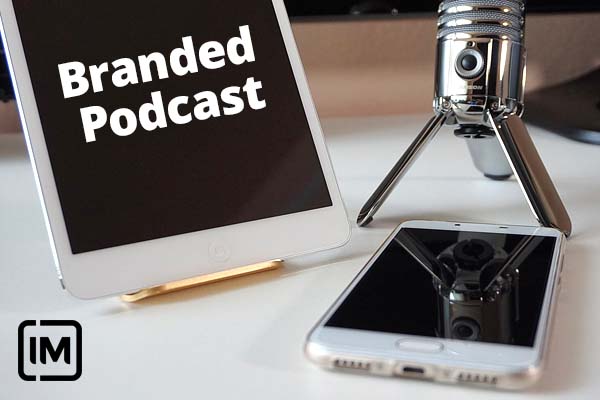Podcasts have been around for some time now, but lately it seems that more and more people are talking about them. Currently, about 40% of all internet users consume them frequently. This relatively new format is in full upswing, and brands, of course, have looked towards it to find new ways to impact consumers. As we’ll see, this channel is very effective at increasing brand memory.
Of course, there are many ways to advertise through podcasts, but today we’ll talk about an especially interesting and non-intrusive method that will probably be a heavy hitter in upcoming years: branded podcasts.
What is a branded podcast?
“Branded podcast” refers to audio content linked to a brand that allows the brand to connect with the consumer. Normally, it refers to a series of episodes ranging from 20 minutes to an hour each on all types of topics, while always responding to a brand necessity.
How did it appear?
It all started in 2017 when Carolyn Walker, CEO of Response Marketing, created the branded podcast Hackable? for McAfee. The company noticed an engagement problem, as people would install the antivirus software on their computers and then disengage from the brand. The podcast, which gave listeners advice on online security and good practices to protect their computers, made consumers listen to the brand and pay attention. The results were incredible.
¿How does this format work?
As we already know all too well, intrusive publicity is outdated, especially when the consumer wants to relax or have fun. Netflix, for example, is working hard to not interrupt the viewers’ experience (and to keep on making money), so it has chosen to integrate brands into the plot of its series through product placement.
When it comes to podcasts, being non-intrusive is achieved differently. It’s more like creating a big budget advertisement: a short, high-quality film with well-known actors made exclusively for the brand, with some small nods to its products. For example, in 2013 Prada presented the short film Castello Cavalcanti, directed by Wes Anderson. In it, there’s no mention of the fashion brand aside from one article of clothing. The focus is on the story being told and the values it transmits to the audience.
Why are Podcasts becoming so successful?
Podcasts are successful due to various factors. One reason for their rise is thanks to mobile devices, which make their consumption much easier. For example, we can listen to a podcast while cooking or commuting to work by car or by underground. Moreover, we can still browse the internet while listening to a podcast on our mobile.
Although it might seem contradictory, a study performed by the BBC concluded that consumers showed 18% more engagement, 40% more emotional intensity, and 22% more recall of podcasts that were consumed while the listener was performing another task. This makes podcasts the ideal platform for branded content.
Another one of this platform’s success factors is the way in which we’ve become accustomed to consuming entertainment or information whenever and however we want. We could say that podcasts are to radio what streaming platforms are to television. We can’t expect users to follow a schedule anymore. People don’t have the time or the will to do this. We want to be able to listen to our favourite show when it’s right for us, so that washing the dishes or mopping the floors is less tedious.
Examples of Branded Podcasts
Many brands have turned to branded podcasts for several reasons. McDonald’s, for example, created the podcast The Sauce in 2018 to combat a PR problem. Its investigative format explores what happened when the company decided to release a very limited batch of Szechuan sauce in the United States (which caused uproar and more than one altercation).
The home-delivery meal service Blue Apron offers the podcast Why We Eat What We Eat to reinforce its brand presence, while the office chat platform Slack offers Slack Variety Pack, in which it reinforces its brand message by telling the stories of successful companies and their teams.
What’s in store for podcasting?
Podcast consumption is increasing year after year, and its easy accessibility thanks to mainstream platforms such as Spotify greatly contributes to this.
What’s more, soon Google will begin to show playable podcasts in SERPs, and we’ll be able to listen to them right there without having to use the term “podcast” in the search bar. So, it seems podcasts will be with us for the long run, especially if they improve our SEO.
Brands, be sure to tune in!
LAURA VILA
Communications Manager. Internacional de Marketing

